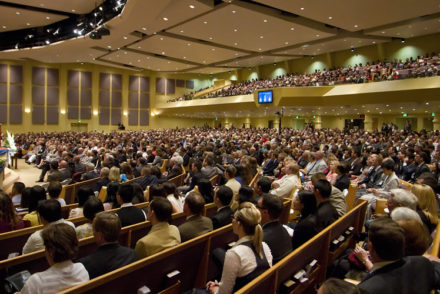In a previous article, I made the statement, “if you are not learning, then I am not teaching.” How then as a teacher can you begin to learn about your students so that you can make sure they are learning?
This article will take a look at the adult learner. Because adult learners learn in many different ways and at many different levels, it can seem intimidating or overwhelming to attempt to teach adults. Research done by Stephen Brookfield identified several commonalities to assist someone teaching adults. Since adult learners seem to follow these “adult learning rhythms or patterns” quite consistently, it would benefit the teacher of adults to be aware of these patterns:
- Desire for a safe environment. An initial assessment of an adult learner would be of someone that is confident, self-directed, and comfortable in the learning environment since they have spent the better half of their first two decades learning. However, Brookfield’s research shows the exact opposite. Most adult learners “feel like ‘imposters’ when in adult learning situations” (Bredfeldt, Creative Bible Teaching, p. 243). The teacher must be aware of this feeling of inferiority and create a comfortable and safe environment that minimizes the fear of failure and focuses on the opportunity and freedom to discover the truths of God’s Word.
- Desire to be emotionally engaged. Typically, when an adult student acknowledges a positive learning experience, it is spoken in emotional terms, i.e. “I loved getting to share with my Sunday School” or “I learn so much from my Sunday School class discussions.” Though cognitive learning does happen, and can be acknowledged, a teacher of adults must be aware that, “adults prefer teaching that causes them to become emotionally engaged, and they seem to speak more highly of their experience in education when their affective side is stirred” (Bredfeldt, p. 243-244).
- Desire to meet a challenge. In desiring to meet a challenge, Brookfield found that “most significant adult learning occurred when adults sense the successful completion of a significant intellectual challenge” (Bredfeldt, p. 244). When the challenge can be resolved, adult learners feel excitement in the accomplishment. This develops a sense of satisfaction with the learning process and a greater opportunity for retention of the newly acquired information.
- Desire for a reflective opportunity. A typical Sunday School meeting will last an hour. The learning time during this hour will only take up a portion of the gathering, yet at best the information being learned will only occupy one hour of an adult learners week. Many adults believe this is just not enough time to adequately reflect on the Biblical truth. Complaints of receiving too much information in such a short period of time develop a sense of information overload that could cause the adult learner to shut down. This can be avoided by having teachers provide time for the adult learners to assimilate new information with past experiences and understandings. Knowing your adult students and their story can help you teach through helping them learn!
- Desire to feel like they are being stretched. Though adult learners are arriving at Sunday School with the specific desire to grow and learn, adults seem to grow in what Brookfield called, “incremental fluctuation.” The adult learner seems to have an initial excitement and enthusiasm for new information, but then gets frustrated by attempting to assimilate the new information to become compatible with existing patterns and experience. Mentally the adult processes the new information, but struggles to incorporate it into their daily life as they return to the comforts of their previous patterns of living. However, with the new knowledge, they are left dissatisfied with their current way of living and are no longer comfortable in their previous patterns. Eventually the adult learner may begin to add pieces of new information to their current structure of living. Though it may appear the adult learner lacks commitment to learning, the “forward-backward-forward pattern of adult learning is normal” (Bredfeldt, p, 244).
- Desire for the unexpected. Though adults are typically seen as being people of structure and routine, Brookfield found it is also true that adults enjoy the unexpected and respond well in the learning process to the unexpected.
- Desire for a learning community. As seen through many generations, adult learners seem to desire the group dynamic and find it to be important to their learning experience. The appeal is for mutual support and a sense of belonging. This structure works best with a small group setting. A typical small group will function best when the group size is between 8-12 people. Much more than that and it will be difficult for members of the group to grow effectively from the experience.





3 Comments
Thanks for the article. Good read.
Thanks for the article. It was a good read & reminder of our responsibility.
Thanks Naomi, your words are great encouragement!